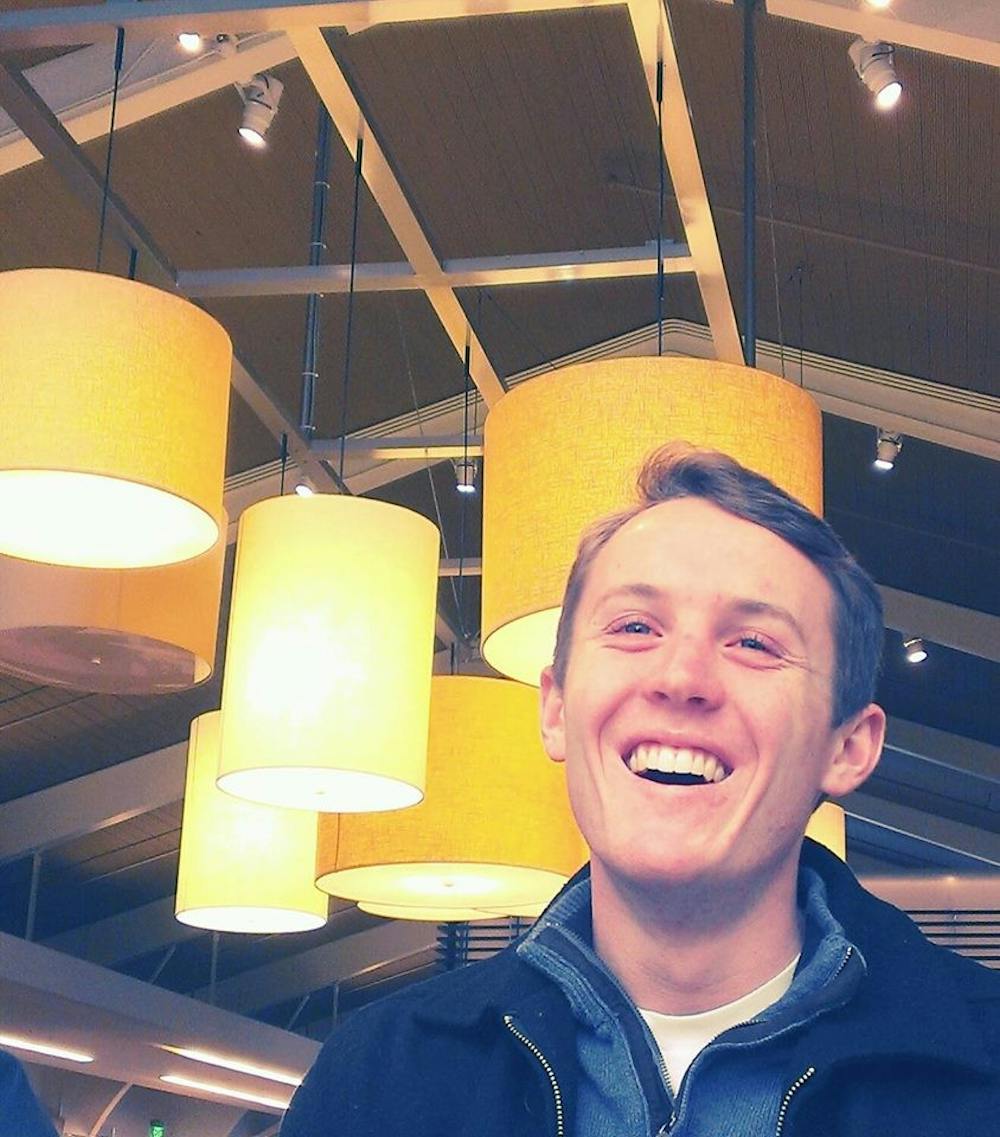by Griffin Hay |
Multiple memorial services didn’t seem to help me come to terms with Ian Andres’ suicide. Healing wasn’t being facilitated; obligations were merely being met. This was the case for many of my friends and teammates, too, it seems. Nothing felt resolved.
Even as we prayed for Ian to find peace, even as I insisted to myself that he would never have to struggle again, I couldn’t banish the feeling that he was still suffering, still pleading for some measure of help. This feeling is now classified as a form of denial in my mind; how could Ian be gone if he still needed my help? Such denial was fed by the lack of concrete facts which I had to support the highly unlikely conclusion that he was, in fact, dead and not just missing, absent until further notice. For more than two weeks, my teammates and I wandered around in a daze, asking ourselves: Where? How? Who saw him last? What was the last thing he said?
Perhaps that seems morbid or voyeuristic, a private matter best left to be relayed from the police to his family, and I would argue that this perception is a reflection of a broader human flaw: to seek the intimate details of tragedy in spite of our separation from a situation. But Ian was our brother at UP. We spent more time with him during his first year at school than his parents did during the last year of his life. Thanks to our weekly training, class schedules, and social lives, each of us talked to and about Ian more during that year than we did our real siblings.
College has always been a place to establish a family of choice and proximity (or at least it has been for me). It seems only natural, then, that my teammates and I would ask for some measure of detail to help us cope with such a profound loss. Such questions did not arise from a desire to be entertained or simply informed, but rather, like Ian’s family, we asked “how?” and “where?” to distract us from our real question: Why?
There is an inherent knowledge that comes when you’re told that a loved one has killed themselves that you will never fully understand why it happened. No comforting purpose can seem to be derived from such an act. So instead, we try to begin reassembling our shattered lives on factual evidence and undeniable truths like time of death and method because they are the only things left that are more stable and constant than our emotions, our pain.
Without such stabilizing details, I saw myself and my teammates struggling to reestablish ourselves in reality — our grades were falling, we were angry and aggravated with one another, running was a coping mechanism, not a priority — until, after multiple weeks, we were given a handful of details about Ian’s final actions. It wasn’t much, but it was enough. We will never be able to ask enough questions to fully come to terms with Ian’s suicide, but those few details have allowed me to work through my self-deception and denial.
Instead of keeping Ian alive by worrying about him, I’m beginning to say his name comfortably, remember the best (and worst) parts about my time with him, and talk about how he would have lived if he were still here. By learning the truth, I’ve started rebuilding my reality. The details bring closure to Ian’s suicide, though they will never close the hole that is left by his absence.
Griffin Hay is a senior English major and can be reached at hay16@up.edu. Griffin is a member of Active Minds, a group on campus dedicated to educating our community about mental health and demonstrating that people are not alone in their mental health struggles.
Mental Health Resources:
UP Health and Counseling Center: 503-943-7134
Multnomah Mental Health Crisis Line: 503-988-4888
Active Minds: activemindsup@gmail.com or facebook.com/activemindsatup









